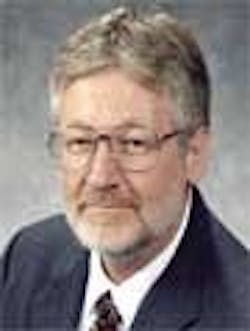BP’s Tony Hayward on energy security
My friend John Melko at Gardere Wynne Sewell invited me to join him Nov. 8 at his table at the Houston Forum luncheon to hear new BP CEO Tony Hayward address an audience of local business and civic leaders. I’m grateful for the invitation not only for the chance to hear Hayward speak, but because it gave me a chance to meet several of John’s colleagues at his firm as well as people like Dr. Jacqueline Weaver, the A. A. White Professor of Law at the University of Houston Law Center. Weaver has taught energy law at the University of Texas and the University of Houston and had some insightful comments about both institutions, but that’s a subject for another column.
Hayward’s comments mostly centered on energy security and how BP and other oil and gas companies are working very hard to keep the energy flowing. He noted that energy security cannot be examined in isolation and that tight supply and ever-increasing demand mean that oil will remain expensive for the foreseeable future.
“The era of cheap energy is behind us,” Hayward said. “[Price] spikes only happen because of underlying problems with supply. If fundamentals are tight, spikes are driven as much by geopolitics as they are by anyone taking trades.”
It’s not as if the oil and gas industry isn’t trying. BP has invested $30 billion in the US alone in the last five years and plans to spend $6 billion a year over the next decade. Saudi Arabia is investing $20 billion in the next five years to increase supply. Around the globe, national oil companies, majors and independents are all doing their part to produce more hydrocarbons to meet the demands of an energy-hungry planet.
So why aren’t we making any
headway?
“Prosperity is putting too great a strain on natural resources,” said Hayward. With demand in developing nations growing almost exponentially, it’s hard to keep pace.
As a result, BP and many other traditional oil companies are diversifying and becoming producers and marketers of alternative energy and renewable fuels. BP, in fact, has become the largest player in solar energy.
This is not just for the political goodwill, said Hayward. “We need to demonstrate that we are part of the solution not the problem.”
However, BP’s CEO believes that “our best hope” is to go back into fields where the recovery rate has only been 20% or so and get more oil. “We are in the very early stages of learning how to recover this oil, and this is our best opportunity.”
Don Stowers Editor -OGFJ
CORRECTIONS: In the October Editor’s Comment, I incorrectly referred to Connecticut Gov. Jodi Rell as “he.” Several readers have pointed out that Rell is, in fact, a woman. In the November issue, our article, “History in the making: the evolution of the 144a market,” mentioned NYPPEX, an acronym for New York Private Placement Exchange. We inadvertently used the wrong name. Also, the exchange was founded in 1999 not 1990. OGFJ

